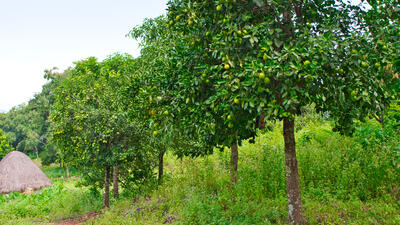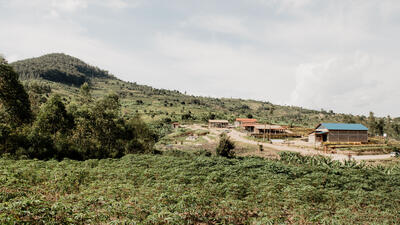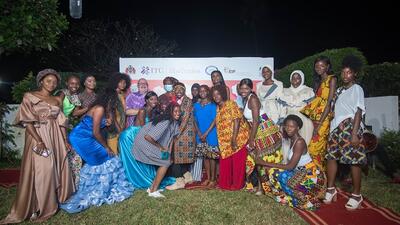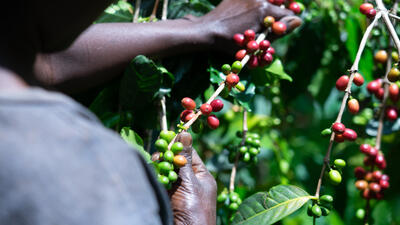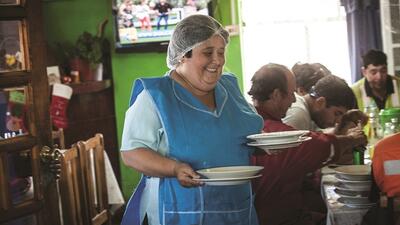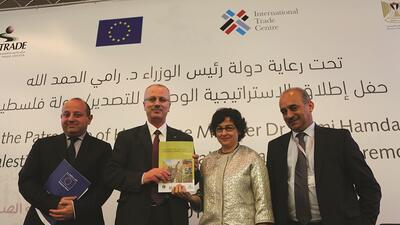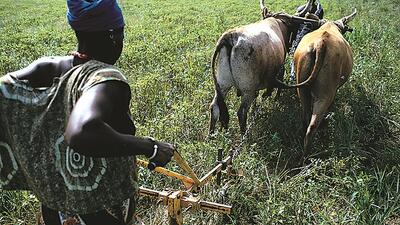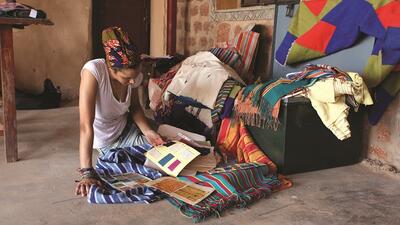Unlocking the potential of informal women traders in East Africa
As women traders struggle to clear goods at official border crossings, they end up trading informally through unlisted border routes. © ITC
E.Nduwimana exports rice from Burundi to Rwanda and, like many other women in informal cross-border trade (WICBT) in sub-Saharan Africa, she avoids official border crossings. ‘I face many problems clearing goods across our borders. For this reason, some of us have been exporting goods using unlisted border routes,’ she said.
Exporting through official border crossings is challenging, leading to major delays: export regulations are opaque, exporters are often charged high processing fees, transport conditions are poor, and women traders are sometimes subject to harassment by border guards, leading to violence. Due to such obstacles and dangers and a general level of ignorance about customs formalities such as required documentation, the majority of WICBTs choose to operate outside existing formal systems. This can lead to problems and lower prices at the point of sale, since they cannot prove the origin of their goods.
In Burundi, informal trade contributes 39% of the country’s gross domestic product, according to the 2010 Consumer Unity & Trust Society (CUTS) International Trade Guide on Fixing Informality. Also in this report, Uganda’s informal exports were estimated at US$ 1.56 billion in 2009, representing 49% of the country’s total export earnings. The magnitude of informal trade is a concern to many governments in sub-Saharan Africa, not only due to lost revenue, but also in terms of border security and the welfare of communities living in border areas.
Women play a key role in informal trade. It is estimated that 70% of informal cross-border trade in sub-Saharan Africa is undertaken by women and youths (United Nations Development Fund for Women, 2009). At the Nemba border crossing between Rwanda and Burundi, for example, many women transport their commodities, mainly clothing and shoes, in their handbags, while youth transport soft drinks and beer on wooden carts and bicycles.
While all parties agree on the benefits of formal over informal trade, making the actual transition is not easy.
In a seminar organized by the International Trade Centre (ITC) and the Association des femmes d’affaires du Burundi, Nduwimana and her fellow traders were provided with information on border formalities. The training was part of a project to build the capacity of WICBTs in the EAC and South Sudan. This project was implemented in 2012 in cooperation with the Common Market for Eastern and Southern Africa following the successful running of a pilot programme that ended in 2012 and that moved 200 Ugandan WICBTs from informal to formal trade.
At the Burundi seminar, Nduwimana learned that most of her exports are not subject to tariffs and duties, and that when exporting goods of less than US$ 2,000 in value, all she needs is a simplified EAC certificate of origin to clear them.
So far more than 2,300 WICBTs have been mobilized, officially joining or forming 19 women trade associations, more than 340 women were trained at designated borders, and some 8,000 women have become part of self-help groups.
Boniface Ciza, National Coordinator for WICBTs in Burundi, said: ‘Women in cross-border trade greatly appreciate ITC’s initiative, giving them the opportunity to get to know other WICBTs and create associations. However, despite ITC’s efforts to facilitate cross-border trade by Burundian women, some obstacles remain present at several levels, and it is more than imperative that the project continues this year.’ The next phase of the project, starting in November, is partially supported by the Department for International Development (DFID) of the United Kingdom of Great Britain and Northern Ireland.
'WICBTs would like to have a better understanding of the rules and regulations, as well as their rights, but there is nowhere for them to turn for this information,' Ciza said. As a response, WICBT associations are setting up trade hubs at several border crossings. As a member of an association, Nduwimana is entitled to free access to all the services provided by the project, including the hub. Membership also serves as a means of networking, speaking to the government with one voice, and mobilizing resources, including loans and financial services.
Staff at the hub facilitate trade by making it easier for traders to complete all border processes at one centre. By distributing technical support guidelines and manuals that outline the steps and procedures needed to trade formally at border points, WICBTs are enabled to work in an efficient and inclusive business environment. They benefit from a reduction in export times and costs, increased levels of compliance with cross-border procedures, and an efficient and transparent fast-track clearance system. All of these benefits reduce uncertainty in the business environment and contribute to increasing the volume of their exports.
This one-stop, single-window approach makes exporting much smoother for WICBTs. The hub also offers training, advice on export business issues, and information on investment and growth opportunities, and advocates for a reduction of non-tariff barriers that affect their business. Hubs have been set up at the Kobero, Gasenyi and Mutukala border crossings since December 2012, and will be rolled out to all official border points among the five EAC countries and South Sudan over the next few years, contributing to regional integration towards both trade and women’s empowerment.








